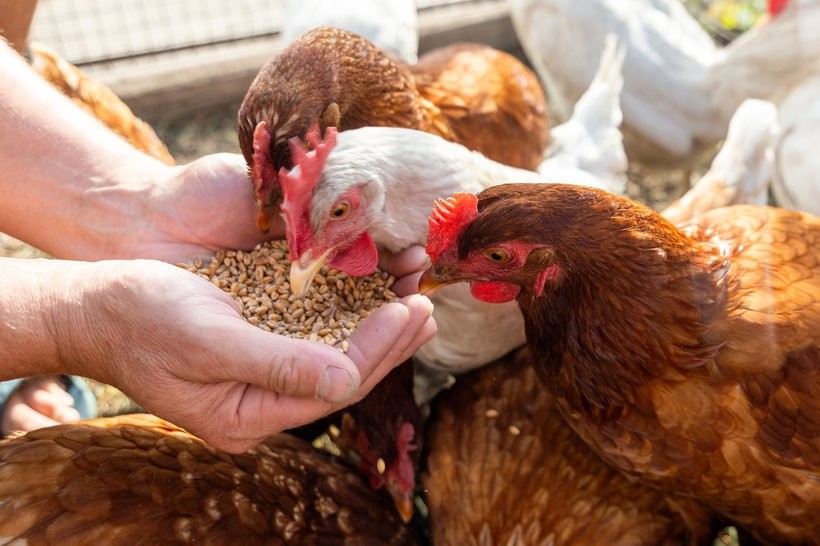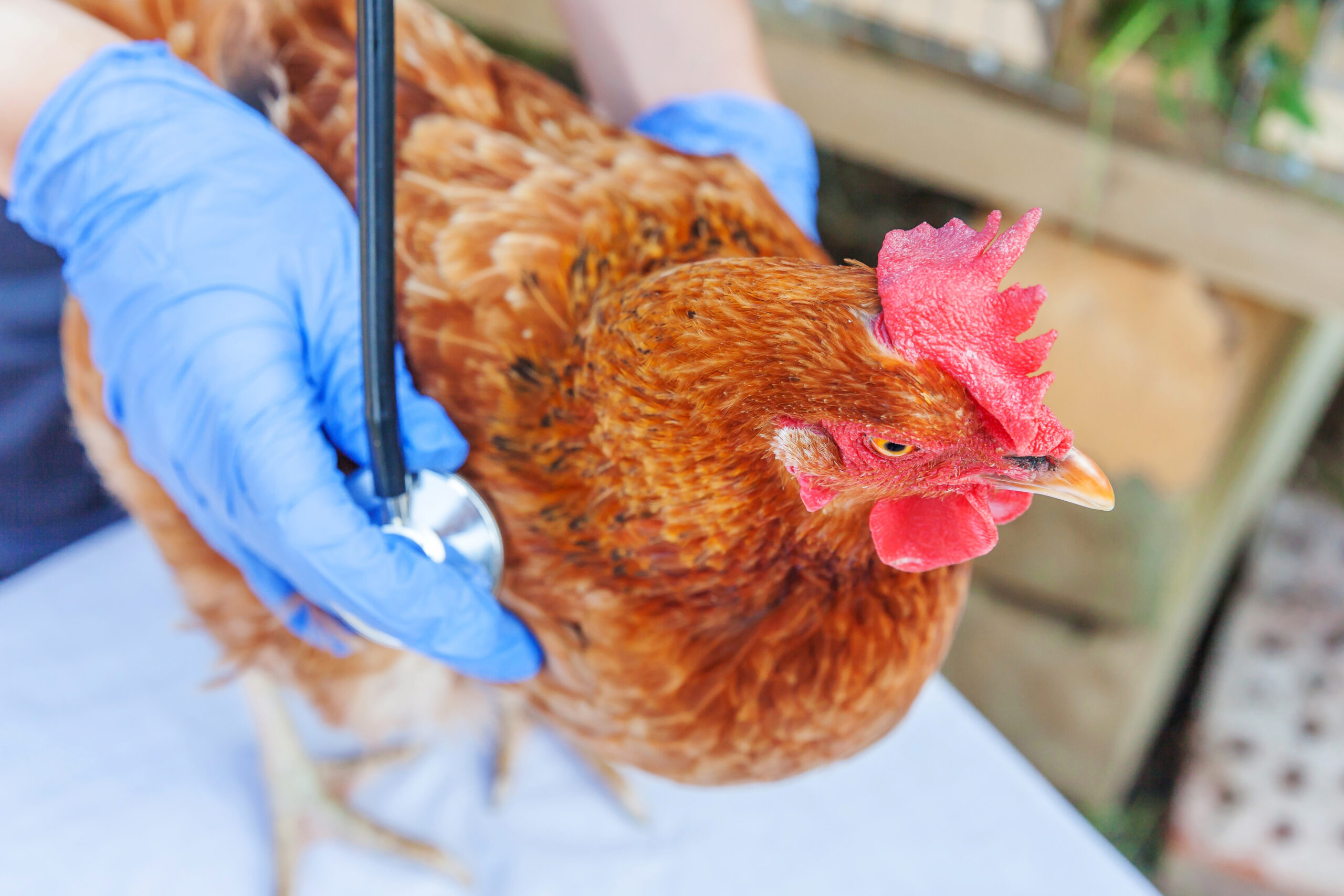Divisional activities include conducting research on basic and applied aspects of avian nutrition, imparting post-graduate teaching and guidance and rendering services viz. advisory, consultancy, feed analysis & quality assurance and training.
Divisional facilities include well equipped laboratories with modern equipments including Near infrared spectroscopy, Atomic absorption spectrophotometer, Amino acid analyser, Nitrogen analyser, Fibre analyser, Bomb caloriemeter and UV Spectrophotometer, etc.
Some of the services offered by the division include contract research, specialized short term training, analysis of feeds and feedstuffs, consultancy services, least cost feed formulation, computer software “MakeFeed”, etc.
Research Activities & Achievements
Precise nutrient supply
Nutrient requirements and dietary inter-relationships of energy, protein and amino acids, calcium, phosphorous, manganese, zinc, selenium, lysine, folic acid, biotin, vitamins A, E and D etc. for different classes and ages of poultry under tropical conditions have been established. Comparative efficacy of DL-methionine and methionine hydroxyl analogue (MHA) has been evaluated in the diet of broiler chickens and quails. The nutrient requirements for broilers and growing and laying quails have been successfully partitioned for developing feeding standards. These recommendations are being used by poultry farmers, feed manufacturers, researchers and Bureau of Indian Standards (BIS).
Alternate feed resources
The database of nutritive/feeding value and safe inclusion levels of alternate feed resources such as sunflower seed meal, maize gluten meal, rapeseed/mustard oil meal, rice bran, wheat bran, guar meal, cotton seed meal, tapioca, sunflower cake, niger meal, millets, molasses, apple pomace, broken rice, neem seed kernel, guar meal, meat meal, liver meal, slaughter house and hatchery wastes, poultry droppings, etc. have been developed. Low cost feed formulae have also been developed incorporating agro-industrial by-products. Several ingredients like sorghum, pearl millet, finger millet, rice kani, rapeseed meal, cotton seed meal, sesame meal, groundnut meal, sunflower seed meal, safflower seed meal, toasted guar meal and niger meal etc. have been tested.
Augmenting nutrient bio-availability
Various treatments like water washing, wet processing, acidified sodium chlorite, roasting, autoclaving, alkali and acid treatments, fungal treatment and fermentation have been applied to improve feedstuff nutritive value. Addition of microbial phytase improved phosphorus utilization, while enzyme supplementation enhanced utilization of sunflower seed meal and millet-based diets. Techniques like solid substrate fermentation with Pleurotus sajarcaju and Aspergillus niger improved feed value of quail droppings and guar meal. The role of mineral chelates, prebiotics, probiotics, organic acids, feed sanitizers in enhancing poultry performance and immunity has been established.
Feed safety
Safety and feeding value of genetically modified crops like Bt cotton, Bt brinjal, Bt corn and QPM maize have been assessed. A thin layer chromatography method for aflatoxin B1 detection was developed and adopted by BIS. Tolerance levels of aflatoxin in avian species have been established. Strategies to mitigate effects of mycotoxins and pesticides through dietary modifications have been studied. Aflatoxins in procured feedstuffs are regularly monitored.
Feed Formulation Software Developed
Window based unique computer software “MakeFeed” has been developed for formulation of low cost, efficient balanced feed for a wide variety of poultry like layer and broiler chickens, quails, guinea fowls, turkeys etc. using database developed in diversified agro-climatic conditions of India.
Feeding management
Feeding management packages of quails were developed for various agro-climatic conditions. Scientific feed formulae were designed for small/marginal farmers using available feed resources.
Designer eggs
Developed low cholesterol chicken eggs enriched with omega-3 fatty acids through dietary interventions including supplementation of copper sulphate, herbs, spirulina, statin, chromium and fish oil.
In ovo feeding
Standardized in ovo feeding and vaccination in chicken and turkey. Identified nutrients modulating growth and immunity related genes. Developed a package for in ovo interventions for enhanced post-hatch growth and immunity.related genes have been identified and a package has been developed for in ovo intervention for better post-hatch growth and immunity in broiler chickens.
Teaching Activities
| Course Code | Title of the Course | T/P | Course Instructor |
|---|---|---|---|
| PSC-561 | Principles of Poultry Nutrition | T | Dr. (Mrs) Divya / Dr. Chandra Deo |
| PSC-562 | Principles of Poultry Nutrition | P | Dr. (Mrs) Divya |
| PSC-665 | Advances in Additional Feed Sources | T | Dr. (Mrs) Divya |
| PSC-666 | Special Problem (MVSc & Ph.D.) | P | Concerned Guide |
| PSC-761 | Minerals in Poultry Nutrition | T | Dr. Chandra Deo |
| PSC-763 | Vitamins in Poultry Nutrition | T | Dr. (Mrs) Divya / Dr. Chandra Deo |
| PSC-765 | Protein Utilization by Poultry | T | Dr. Chandra Deo |
| PSC-766 | Protein Utilization by Poultry | P | Dr. (Mrs) Divya / Dr. Chandra Deo |
| PSC-767 | Energy Utilization by Poultry | T | Dr. (Mrs) Divya / Dr. Chandra Deo |
| PSC-768 | Energy Utilization by Poultry | P | Dr. (Mrs) Divya / Dr. Chandra Deo |
| PSC-771 | Advances in Avian Nutrition and Feed Technology | T | Dr. (Mrs) Divya |
Faculty Profile
| S.No. | Name | Status |
|---|---|---|
| 1 | Dr. Chandra Deo | Principal Scientist & Head |
| 2 | Dr. (Mrs) Divya | Principal Scientist |
Feed Storage, Quality Control & Processing
The main activity of Feed Storage & Processing unit includes procurement and storage of different feed ingredients, feed formulation, quality control and ensuring balance feeds for valuable germplasm of layers, broilers, guinea fowls, quails, turkeys, and emu maintained under different Divisions/Sections of the Institute as well as research projects involving poultry at IVRI, Izatnagar.








.png)

